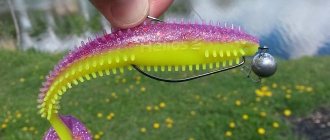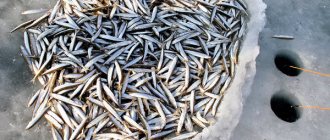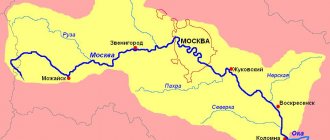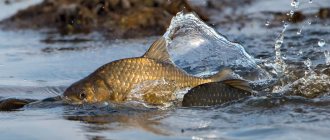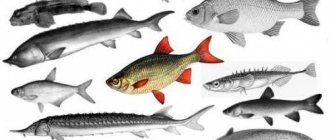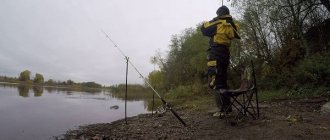Aquarists, fishermen, and ordinary people sometimes think about what kind of memory fish have. Many are convinced that it does not exist at all, but some are ready to defend the opposite point of view. Some people remember Dory the fish from the popular cartoon about Finding Nemo, while others would like to cite a couple of real-life examples. How is it really? Let's try to figure it out and answer the most important questions about the memory of these creatures.
What do aquarium fish remember?
Attentive aquarists know very well that their pets are able to remember a lot, from manipulations accompanying feeding to dangerous situations.
If you are concerned about the question of what kind of memory fish have, you will probably be interested to know what exactly these creatures can remember. Namely:
- aquarium neighbors;
- feeding place;
- dangerous places in the aquarium (stream under the compressor, resting places for aggressive neighbors, nooks from which it is not easy to get out);
- water temperature;
- light mode.
What is the memory of a fish?
The misconception about a three-second memory is already refuted by ordinary aquarium pet lovers. Each of them determines the memory time of fish differently. Some people allocate a period of short memory of 2 minutes, others give other figures, but everyone agrees that you can develop the habit of swimming to the place of food in response to a knock or other conditioned signal. Many fish can distinguish the owner of the aquarium from a stranger.
When studying the life of carp, it was found that they can form stable groups, breaking up and gathering again.
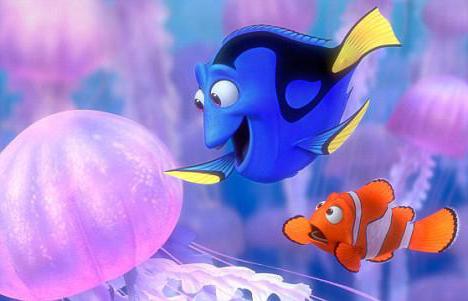
The age of the community members does not matter. The members of the “family” move not chaotically, but following certain routes. They have their own permanent places for feeding, sleeping, and shelter. This alone proves that fish do not have such a short memory.
Moreover, each group has its own “veteran” who can somehow pass on his experience to younger friends.
Memory of wild fish
Fish living in reservoirs also have excellent memory. They record and can later recall the following:
- places rich in food;
- dangerous areas of the reservoir;
- currents;
- underwater sources;
- temperature;
- places of permanent overnight stay;
- various types of bait, hooks, gear;
- outlines of boats and watercraft;
- Seasons;
- predators;
- underwater inhabitants of food interest.
The essence of the Australian experiment
The purpose of the experiment, conducted by 15-year-old student Rorau Stokes, was to determine the period of time during which a fish retains a significant object in memory.
To do this, several ordinary goldfish were placed in a separate aquarium, where they were regularly shown a beacon-tag 13 seconds before feeding, placing it exactly where the food was then served (the location was constantly changing).
The experiment lasted for 3 weeks. In the first 2-3 days, it took about a minute for the fish to gather in the right place. Later they managed to swim up in 5 seconds.
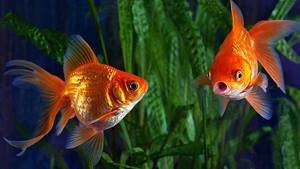
After the three-week period, the tag was no longer placed in the container with the fish, feeding without identification marks. The break lasted 6 days. When, on the 7th day, the experimenter used the mark again, the inhabitants of the aquarium gathered in the indicated place in 4.5 seconds.
The results of the experiment allow us to assert: the memory of a goldfish is capable of storing a significant image for 6 days, and not 3 seconds, as some people think, and this period is not a limit; Thus, Israeli studies have found that the memory of goldfish is 5 months.
How does memory work in fish?
Scientists explain that fish think in images, which they retrieve from memory for use as needed. These creatures have well-developed both long-term and short-term memory. Species that live in flocks have a kind of collective memory—habits common to the group. They use the same routes year after year and maintain the same routine. If you divide a flock, individual individuals will retain the memory and will strive to lead the same lifestyle.
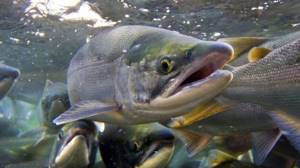
Observing groups in aquariums and the wild helps to understand what kind of memory fish have and how it works.
How and what do fish remember?
Memory is formed by the experience of a fish and develops throughout life. The older the individual, the more data its memory stores, and the more difficult it is to catch it.
Pisces are able to remember the following:
- feeding and sleeping areas;
- wintering area;
- dangerous areas;
- speed and direction of current;
- fishing lures;
- river water temperature;
- Seasons;
- routes;
- relatives and enemies.
The work of fish memory is based on associative images that are stored in the brain and subsequently reproduced. Representatives of underwater fauna have both short-term and long-term memory. The first type is based on the habits of the inhabitants of reservoirs, the second - on memories.
River
An experiment conducted on carp showed that they remember their relatives and coexist closely with them. They gather in groups of 2-3 to several dozen individuals. The age of the fish in the group varies, which indicates their ability to live in families. In such groups, carp feed, move around the pond and sleep. During life, small cells are formed from a large cell, which can subsequently unite.
Every family has an older fish whose behavior is particularly cautious. With experience, she learns to distinguish natural food from fishing baits and passes on her experience to young individuals.
If you release a caught fish back into the reservoir, it will find its group and return to it.
River fish move along the same routes in search of food, and this behavior lasts from several years to a lifetime.
During the day, the inhabitants of reservoirs visit places where they can have a snack, and in the evening they return to a safe place to spend the night. They also choose places for wintering, where they swim annually. After emerging from hibernation, the fish return to their usual way of life.
Aquarium
Fish living in an aquarium remember feeding times. They recognize not only the person who feeds them, but also the people who live in the apartment permanently. Their reaction to the appearance of a breadwinner is expressed in animation, but the fish will not react at all to the sight of a stranger. According to experiments, fish are able to remember those representatives of their species with whom they are kept. They distinguish new individuals added to the aquarium from old ones. They may react to the appearance of a newcomer with alienation or, conversely, with interest.
How a student trained fish
While fishermen and aquarists argue about what kind of memory a fish has, scientists have long been conducting eloquent experiments. Interested amateurs are also engaged in research. The simplest and most useful experiment was carried out by an Australian student.
In an attempt to determine how many seconds of memory a fish has, he used residents of an ordinary home aquarium. The experiment was based on the same feeding. The student decided to determine whether fish can remember conditioned signals. To do this, he built a special beacon, which he placed in the aquarium 13 seconds before the start of the meal. Each day the tag was placed in a new location so that the fish would associate the food supply with it.
It took the fish about three weeks to get used to the mark. During this time, they learned to gather at the beacon and wait for food to arrive. Moreover, at the beginning of the study, collection took more than a minute. After 20 days, the hungry fry grouped together within seconds!
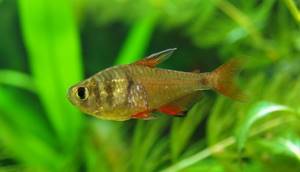
The easiest way to test your fish's memory is during feeding.
The student did not stop there. For the next few days, food was supplied to the aquarium without warning. The beacon did not go down , and the water inhabitants did not dine in flocks.
A week later, the student lowered the signal mark again. To his great surprise, he discovered the fish gathered in a group in just four seconds. They remembered the algorithm that happened a week ago and patiently waited for the food to arrive.
Any aquarium owner can check how much memory a fish has.
To do this, it is enough to have:
- fish;
- habitable aquarium;
- signal beacon;
- food familiar to fish;
- timer.
How long the experiment will last depends on the patience of the experimenter!
https://youtube.com/watch?v=wt_hUFzqzzE
Experiment with cichlids
Scientists from Canada conducted a slightly different experiment to determine the memory of fish. They tried to figure out whether cichlids are able to remember a specific feeding location that is not associated with an identification mark.
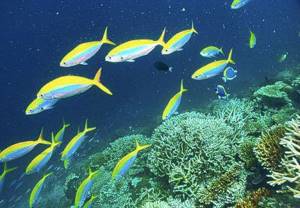
Over the course of three days, they poured food into the aquarium in one specific place. By the end of the experiment, most of the fish swam there. Then all the cichlids were transplanted into another aquarium, which was completely different both in structure and volume from the first. They spent 12 days there. Then they were returned to their native aquarium. Scientists discovered that all the fish swam in the exact area where they were given food twelve days ago.
Many other experiments have been carried out. Of particular interest is the experience of Japanese researchers, where they studied fish with transparent bodies, and scientists could visually study the functioning of the brain of living creatures using the introduced labels.
In any case, numerous experiments and practical observations have shown that the memory of fish is not fiction, and it significantly exceeds three seconds. Not every person is able to store information for as long as these creatures. So it is unknown who was more offended by the above-mentioned TV presenter - Michael Phelps or the fish.
What does a fish remember?
River fish, moving along the river in search of food, remember places where they can have a snack throughout the day, and when darkness falls, they can return to their previous, safer place, where they can spend the night without any problems.
They are able to remember sleeping places, wintering places and feeding places. Fish do not overwinter anywhere or where winter has overtaken them: they overwinter in the same places for a long time. If the fish's memory did not work, it is unlikely that it could survive.

In this regard, we can recall fish such as perch, which lives in schools. Without memory, it would be impossible to do this: after all, most likely, perches remember each other in a way that is not clear to us.
You can also remember the asp, which feeds in a certain, its territory. At the same time, he walks the same route every day, chasing the fry. Also, he clearly knows the boundaries of his territory and does not swim wherever his eyes look.
Igor 03/10/2016
Unbiased opinion of fishermen
The opinion of aquarists can be explained. Love for pets and other tenderness will definitely put the owner on the side of good. Fishermen who “contact” with free inhabitants of reservoirs have a completely different opinion.
Arguing about the memory of fish, fishermen have long been divided into two camps.
Some people believe that swimmers are unable to remember absolutely nothing. They argue this with “the same rake” that any crucian carp steps on when it gets off the hook. As soon as he manages to escape from his death, he immediately pecks on a nearby hook.
However, the herd feeling and competition have not been canceled. A lip damaged by tackle is not yet a reason for a hunger strike, the fish decides. And then he bites again.
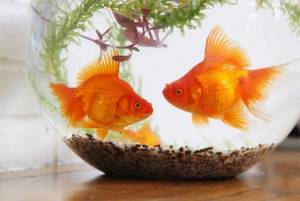
Fishermen's opinions about fish memory are divided into two camps
Other fishermen, on the contrary, defend the right of finfish to thinking abilities. This group includes those who actively feed future prey near the shore. Most of these fishermen have a favorite place where they prefer to pilgrimage even on days off from fishing. By teaching the fish to eat in the same place, the angler ensures an excellent bite. After all, the fish will definitely come to a nutritious place.
So, systematizing knowledge about fish memory, we can highlight the following points:
- Pisces are capable of remembering. True, they only remember what is useful to them for survival. Place of feeding, appearance of dangerous brothers, tasty baits.
- Some instincts are sometimes stronger than a fish's memory. Trying to grab a larger piece, the carp ignores its own experience and gets hooked again.
- Most knowledge is related to food, but this does not mean that other factors disappear from the minds of fish.
